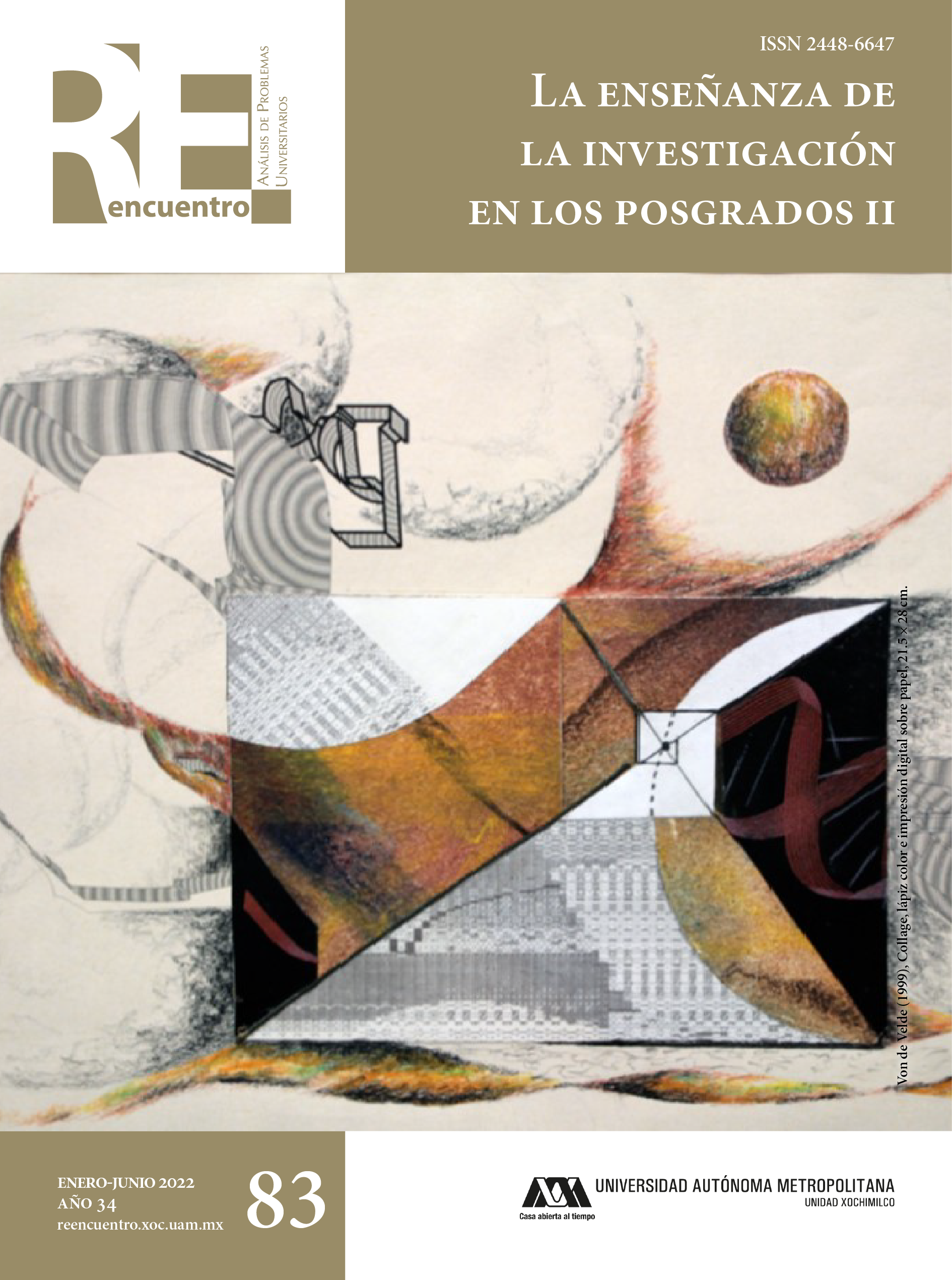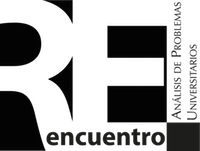Desde una formación fragmentada a una integradora:
fomentando una perspectiva polímata y holística en la investigación científica
Palabras clave:
Investigación científica, Generalista, Holista, Polímata, FormaciónResumen
Los cambios socioeconómicos, el desarrollo progresivo de tecnologías y el aumento del conocimiento científico, llevan a la formación de profesionales en investigación de posgrado a una encrucijada. Aunque las Instituciones de Educación Superior (IES) han estado educando a los estudiantes para llevar a cabo investigación y desarrollo tecnológico desde sus propios campos disciplinares, todavía falta por ofrecer una formación con un enfoque holístico o generalista, en conjunción a la formación especializada que prevalece en las IES. Aspectos como la comunicación científica con públicos diversos, la colaboración e interacción con otros profesionales de diferentes áreas de conocimiento, el desarrollo de habilidades de pensamiento crítico, así como una formación ética y humana dan cuenta de lo importante de desarrollar una mentalidad “multidisciplinaria” en el quehacer de la investigación científica.
Citas
American Psychological Association. (2005). The importance of disciplines. Pscyho- logical Science Agenda. https://www.apa.org/science/about/psa/2005/10/ ed-column
Basalla, S. & Debelius, M. (2015). “So What Are You Going to Do with That?” Finding Careers Outside Academia. University of Chicago Press.
Ben-David, J. (1971). The scientist ́s role in society: A comparative study. Englewood Cliffs, NJ: Prentice-Hall.
Bollfrass, A. K. & Herzog, S. (2022). The War in Ukraine and Global Nuclear Order. Survival, 7-32.
Borjas Gil, M., y Vílchez Paz, C. (2009). Ciencias “duras” vs. ciencias “blandas”. Revista Electrónica de Humanidades, Educación y Comunicación Social, 195-209.
Bosch, G. & Casadevall, A. (10 de Agosto de 2018). Graduate biomedical educa- tion needs an overhaul. Here ́s our version. stat. https://www.statnews. com/2018/08/10/graduate-biomedical-education-overhaul/
Burke, P. (2020). The Polymath. A Cultural History from Leonardo Da Vinci to Susan Sontag. Yale University Press.
Casadevall , A. & Fang, C. F. (2014). Specialized Science. Infection and Immunity, 1355-1360.
Cinvestav. (2022). Misión. Obtenido de Doctorado Transdisciplinario Desa- rrollo Científico y Tecnológico para la Sociedad. https://transdisciplinario. cinvestav.mx/mision
Cotellessa, A. J. (2018). In Pursuit of Polymaths: Understanding Renaissance Persons of the 21st Century. The George Washington University. ProQuest Dissertations Publishing.
De Sousa Santos, B. (2010). Refundación del Estado en América Latina. Perspec- tivas desde una epistemología del sur. Ediciones ivic.
Eliaz Gutiérrez, M., Valdez Moreno, M., Carrillo, L. & Vázquez Yeomans, L. (2017). To be a scientist in Mexico... or not to be? The Lancet, 2434.
Espindola Araki, M. (2015). Polymathic Leadership: Theoretical Foundation and Construct Development. Tesis de Maestría. Rio de Janeiro, Pontifícia Universidade Católica do Rio de Janeiro.
Favela Camacho, S. M. (2015). Diseño de un instrumento para la evaluación de la eficacia de la enseñanza de los docentes en la uacj. uacj Recursos Elec- trónicos. Productos de Investigación icsa-miea. Ciudad Juárez, Chihuahua: Universidad Autónoma de Ciudad Juárez.
Favela Camacho, S., Favela Camacho, S. y Favela Camacho, G. (2021). Intermedia- ción del conocimiento: Construyendo el puente para cerrar la brecha entre la investigación científica y la práctica. Cultura Científica y Tecnológica, 1-8.
Flores Osorio, J. M. (2018). Retos y contradicciones de la formación de investiga- dores en México. Educar em Revista, 35-49.
Fredrickson, R. (1979). Career development and the gifted. En N. Colangelo, & R. Zaffran. New voices in counseling the gifted. 264-276. Kendall/Hunt.
Funk, J. L. (Diciembre de 2018). The Increasing Limitations of Academic Experts:
Narrower Specializations and Less Practicality even as Problems Become More Complex. https://www.researchgate.net/publication/329771515_The_ Increasing_Limitations_of_Academic_Experts_Narrower_Specializations_ and_Less_Practicality_Even_as_Problems_Become_More_Complex
Gershenson, C. (2009). Enfrentando a la Complejidad: Predecir vs. Adaptar. Adap- tation and Self-Organizing Systems, 1-11.
Gil Antón, M. (2004). ¿Ciencias duras y ciencias blandas? Una falsa dicotomía. Contaduría y Administración, 151-164.
González Figueroa, F. (2010). Complejidad y multirreferencialidad en el contexto educativo. Xihmai, 59-72.
Hagan, J., Ho, P. S. & Hudis, P. M. (2010). Designing Multidisciplinary Integrated Curriculum Units. ConnectEd: The California Center for College and Career.
Heidt, I. (2015). Exploring the Historical Dimensions of Bildung and its Metamor- phosis in the Context of Globalization. L2 Journal, 2-16.
Ibarra Rosales, G. (2000). Reflexiones en torno a la formación de investigadores de la unam Colección Pedagógica Univesitaria, 63-184.
Inguillay Gagñay, L. K., Tercero Chicaiza, S. L. y López Aguirre, J. (2020). Ética en la investigación científica. Revista Imaginario Social, 42-51.
Janssen, W. & Goldsworthy, P. (1996). Multidisciplinary research for natural resource management: Conceptual and practical implications. Agricultural Systems, 259-279.
Kaufman, J. C., Beghetto, R. A., Baer, J. & Ivcevic, Z. (2010). Creativity polymathy: What Benjamin Franklyn can teach your kindergartener. Learning and Indi- vidaul Differences, 380-387.
Kirchherr, J. (9 de agosto de 2018). A PhD should be about improving society, not chasing academic kudos. The Guardian. https://www.theguardian.com/ higher-education-network/2018/aug/09/a-phd-should-be-about-impro- ving-society-not-chasing-academic-kudos
Laal, M. (2011). Lifelong learning: What does it mean? Procedia - Social and Beha- vioral Sciences, 470-474.
Lentzos, F. (2022). Biological Weapons Are a Thing of the Past... Or Are They? gen Biotechnology, 355-359.
Mohan, A. V. & Tamma, K. (2021). The Lasting Contribution of Alexander von Humboldt to Our Understanding of the Natural World. Reason, 1041-1050.
Morin, E. (2004). Introducción al pensamiento complejo. Gedisa.
Muller, G. (2007). Industry and Academia: Why Practioners and Researchers are Disconnected. Embedded Systems Institute, 1-11.
Ortiz Lefort, V., Pérez Mena, R., Martínez Valdez, R. L. y Serrano Rubio, J. O. (2015). Principales estrategias de vinculación universitaria: el caso de inves- tigadores mexicanos. En I. Monfredini, Ciencia y universidad. Desafíos en la Argentina, Brasil y México. 105-129. Editora Universitária Leopoldianum.
Reding, D. F. & Eaton, J. (2020). Science and Technology Trends 2020 - 2040. nato Science & Technology Organization.
Rivas Tovar, L. A. (2005). La formación de investigadores en México. Perfiles Lati- noamericanos, 89-113.
Salgado, S. (2012). La filosofía de Aristóteles. Serie historia de la Filosofía. Cuadernos Duererías.
Sánchez, J. (1944). Alfonso x el Sabio. M. Aguilar.
Savvina, O. V. (2016). Humboldt ́s university model in the conteporary world. RUDN Journal of Philosophy, 42-50.
Sjostrom, J. (2017). Towards Bildung-oriented science education - framing science teaching with moral-philosophical-existencial-political perspectives. nfsun. 77-80. Trondheim: Norwegian University of Science and Technology.
Sjostrom, J., Frerich, N., Zuin, V. & Eilks, I. (2017). Use of the concept of Bildung in the international science education literature, its potential, and implications for teaching and learning. Studies in Science Education, 165-192.
Smith, A. (1776). An inquiry into the nature and causes of the wealth of nations. Methuen & Co. Ltd.
Smith, J. & Karr-Kidwell, P. J. (2000). The Interdisciplinary Curriculum: A Literary Review and a Manual for Administrators and Teachers. eric - Institute of Education Sciences, 1-71.
Terjesen, S., & Diamanto, P. (2015). From the Editors: In Praise of Multidiscipli- nary Scholarship and the Polymath. Academy of Management Learning & Education, 151-157.
The London Interdisciplinary School. (2022). Professional Development. The London Interdisciplinary School. https://www.lis.ac.uk/professional-deve- lopment/
Torres Leza, F. (2004). Leonardo Da Vinci: Un modelo multidisciplinar abierto al mundo de hoy. Encuentros Multidisciplinares, 18-36.
Tse, T. & Esposito, M. (30 de Marzo de 2014). Academia is disconnected from the real world. Financial Times. https://www.ft.com/content/4f5fc7a2-7861- 11e3-831c-00144feabdc0
Ulloa Tapia, C. (2013). El populismo en la democracia. Forum. Revista Departa- mento de Ciencia Política, 83-94.
University of Southern California. (2022). usc Sidney Harman Academy for Poly- mathic Study. usc Libraries. https://polymathic.usc.edu/
University of Texas at Austin. (2019). cns Honors Center - Prospective Students. Obtenido de The University of Texas at Austin College of Natural Sciences. https://cns.utexas.edu/honors/honors-programs-center/polymathic/pros- pective-students
Vosskamp, W. (1986). From Specialization to the Dialogue Between the Disciplines. Issues in Integrative Studies, 17-36.
Young, J. & Marzano, M. (2010). Embodied interdisciplinary: What is the role of polymaths in environmental research? Environmental Conservation, 1-3.






